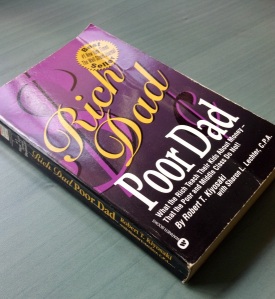The period from August 2011 to October 2011 was an eventful one for investors worldwide. US credit rating got downgraded, Europe was reeling into a recession (and still might be), talks of hard landing in China, among others, covered the financial pages of newspapers everywhere. The VIX index (measurement of volatility in the S&P 500 index), aka the fear gauge, peaked at around 47 during this period.
This same period was when I learnt a lot as an investor. I have not seen a huge plunge in global markets ever since I started investing in June 2009. STI went into bear market region after dropping 20% from the peak. It seemed like the financial crisis of 2007/2008 all over again.
In June 2011, I sold off some overvalued stocks such as Super. I also sold off some silver holdings. I was lucky to sell them off prior to the market correction. I also reduced my percentage holdings of some companies to lock in profits, even though the stocks were still undervalued. On hindsight, I should not have pared down on these holdings as the stocks are still undervalued. I wasn’t disciplined enough to stick to my plans and hurt my returns as a result. I should have just held on to these stocks to collect dividends while waiting for the crisis to end. If the stock price really drops (10% – 15% below my average price), I can average down excitedly if the company is fundamentally still intact. From this episode, I learnt not to time the market. The market and economy are so dynamic that no one can predict them with accuracy, not even the top economists.
I managed to average down on my SSE 50 ETF which was down 23% at one point. I’m satisfied to have averaged down this ETF as I have a firm believe in China. I couldn’t average down on other stocks as the price didn’t come down as much, even though I wish they have. I was hoping Kingsmen will come down to around $0.50 again but it didn’t happen, sadly.
I was also looking to buy stocks such as ARA at around $0.80 but the price never came down that. I told myself to be patient as that’s a valuable trait of a value investor. It’s no point buying an overvalued asset. I will just wait for the another major correction/crisis or if this current Europe crisis gets worst, I will look into buying some stocks again. On average, a crisis usually happens once every 5 years. Meanwhile, I will just save up and sock up on cash. The patient one with cash can make a huge killing when the right time comes.
In summary, I have learnt not to time the market as it’s futile and to hold on to my holdings if they are still undervalued. I can average down with the cash I have and collect dividends meanwhile. My investing style is still evolving as I’m still learning from what Mr Market presents everyday. Experience is the best teacher as there’s only so much you can learn from reading books.
 My journey into the world of personal finance and investing started around October 2007 when I was in National Service (NS). I was 19 years old then. I was just promoted to be a Third Sergeant and wanted to learn how to budget my extra allowance prudently to prevent overspending. I made a trip to Popular bookstore to purchase some books on budgeting.
My journey into the world of personal finance and investing started around October 2007 when I was in National Service (NS). I was 19 years old then. I was just promoted to be a Third Sergeant and wanted to learn how to budget my extra allowance prudently to prevent overspending. I made a trip to Popular bookstore to purchase some books on budgeting.